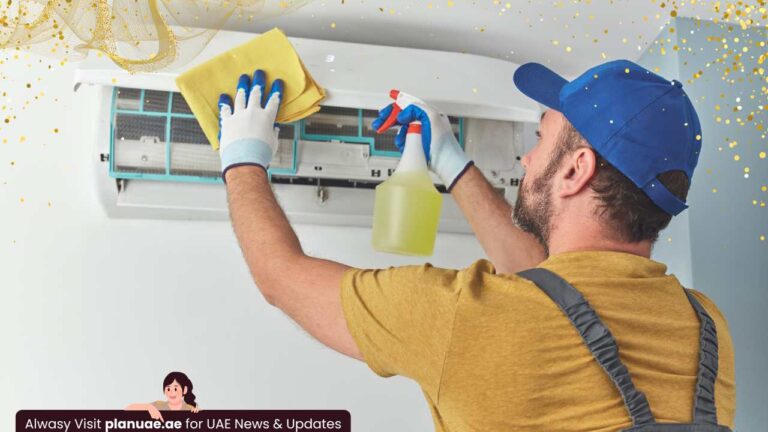Is your VW AC failing to keep you cool in Dubai’s scorching heat? If your Volkswagen air conditioning isn’t performing as it should, it could be a sign of a refrigerant leak, clogged condenser, or faulty compressor. Ignoring these issues may lead to costly repairs or even complete system failure. Studies show that a 10% drop in refrigerant levels can reduce cooling efficiency by up to 20%—meaning your AC works harder while delivering less comfort. From weak airflow to strange noises, knowing the early warning signs can save you from a breakdown. Read on to discover when to go for VW AC Repair Services Dubai and how to prevent long-term damage.
How Does a VW AC Work?
Your Volkswagen’s air conditioning system is more than just a button that blasts cold air—it’s a complex system designed to regulate temperature, remove humidity, and ensure a comfortable ride. Knowing how it works can help you spot issues early and keep it running efficiently.
Key Components of a VW AC System
- Compressor – The heart of the system, the VW AC compressor pressurizes and circulates refrigerant through the system. If it fails, the AC won’t cool properly.
- Condenser – This component works like a radiator, dissipating heat from the compressed refrigerant. A clogged condenser can lead to overheating and poor cooling performance.
- Expansion Valve or Orifice Tube – This regulates the flow of refrigerant into the VW evaporator, converting it from high-pressure liquid to a low-pressure mist for cooling.
- Evaporator Coil – Located inside the dashboard, the VW AC evaporator absorbs heat from the cabin air, cooling it before releasing it back inside. Leaks or mold buildup here can lead to poor cooling and bad odors.
- Blower Motor & Cabin Air Filter – The blower motor pushes cooled air into the cabin, while the cabin air filter removes dust and allergens. A dirty filter can reduce airflow and strain the system.
How Your VW AC Cools the Cabin
- Compression & Heat Dissipation – The AC compressor pressurizes refrigerant gas, sending it to the condenser, where it cools and turns into a liquid.
- Refrigerant Expansion – The liquid refrigerant flows through the expansion valve, rapidly dropping in pressure and temperature.
- Cooling Process – The cold refrigerant passes through the evaporator coil, absorbing heat from the cabin air.
- Air Circulation – The blower motor pushes the cooled air through the vents while the refrigerant cycles back to the compressor to repeat the process.
A well-maintained Volkswagen AC system not only keeps your cabin cool but also improves fuel efficiency and prevents costly repairs. If your VW AC isn’t performing at its best, it might be time for a check-up and refrigerant recharge to keep things running smoothly.
Is Your VW’s AC Struggling? Don’t Ignore These Warning Signs!
Your Volkswagen’s air conditioning system is essential for surviving Dubai’s intense heat. But like any other car component, it wears down over time. If your VW AC isn’t performing as it should, catching the early warning signs can save you from costly repairs. Here’s what to watch out for:
- Weak or Reduced Airflow – If the VW AC airflow feels weak, it could be due to a clogged cabin air filter, a faulty blower motor, or blocked vents. This forces the system to work harder, reducing efficiency and cooling power.
- Blowing Warm Air Instead of Cold – When your Volkswagen AC blows hot air, it often means low refrigerant levels, a leaking evaporator, or a failing compressor. Without proper refrigerant pressure, the system won’t cool effectively.
- Unusual Noises While Running – A well-functioning VW AC runs quietly. If you hear squealing, grinding, or rattling sounds, it could indicate a worn-out compressor, loose belts, or debris inside the system.
- Musty or Foul Smells – A moldy or sour odor when you turn on the Volkswagen air conditioning suggests bacteria buildup in the evaporator coil or a clogged cabin filter. A burning smell could point to electrical issues.
- Water Leaks Inside the Cabin – If you notice water pooling on the floor near the passenger side, your VW AC drain hose might be clogged or disconnected, causing condensation to leak inside instead of draining properly.
- AC Turning On and Off Too Frequently – If your VW AC cycles on and off rapidly, it could be due to a faulty thermostat sensor, low refrigerant levels, or a failing compressor clutch. This short cycling puts extra stress on the system.
- Higher Fuel Consumption – A struggling Volkswagen AC system forces the engine to compensate, leading to higher fuel consumption. If your gas mileage drops whenever the AC is on, the system may not be running efficiently.
Don’t Let Your VW AC Fail – Act Now!
Ignoring these VW AC problems can lead to a complete AC system failure, leaving you sweating through the summer. If you notice any of these signs, it’s time to get a Volkswagen AC service before the damage gets worse. Stay cool and book an AC check-up today!
Causes of VW AC Problems – Why Your AC Isn’t Working Properly
A failing Volkswagen AC system isn’t just frustrating—it can also lead to costly repairs if ignored. Understanding the root cause can help you fix issues at VW Garage Dubai before they get worse. Here are the most common reasons why your VW AC might not be working as it should:
- Low Refrigerant Levels or Leaks – The VW AC refrigerant (also known as R134a or R1234yf, depending on the model) is essential for cooling. A leaking AC hose, evaporator, or condenser can lead to low refrigerant levels, making the system blow warm air.
- Clogged or Faulty AC Condenser – The VW AC condenser, located in front of the radiator, releases heat from the refrigerant. If it’s blocked by debris or damaged, airflow is restricted, leading to poor cooling efficiency.
- Failing AC Compressor – The VW AC compressor is responsible for circulating refrigerant. If it’s seized, leaking, or has a worn-out clutch, your AC won’t cool properly, or it may not turn on at all.
- Faulty Blower Motor or Fan – If the VW AC blower motor is malfunctioning, air won’t circulate through the vents, even if the system is cooling properly. A broken resistor or worn-out fan motor can cause weak or no airflow.
- Dirty or Clogged Cabin Air Filter – A VW cabin air filter traps dust, pollen, and pollutants, but if it’s clogged, it reduces airflow and puts strain on the AC system. A simple cabin filter replacement can restore cooling performance.
- Blocked or Leaking AC Evaporator – The VW AC evaporator absorbs heat, but it can get clogged with dirt or mold, leading to weak cooling and musty smells inside the car. Leaks in the evaporator coil can also cause refrigerant loss.
- Electrical Issues or Blown Fuses – A blown AC fuse, faulty relay, or wiring problem can prevent the AC from working. Many VW AC issues stem from sensor failures or loose connections, which require a professional diagnosis.
- Malfunctioning Expansion Valve or Orifice Tube – The VW AC expansion valve regulates refrigerant flow. If it gets stuck open or closed, it can disrupt cooling performance, either freezing up the system or preventing it from cooling.
- Defective Temperature Sensors – The Volkswagen AC temperature sensor monitors cabin temperature to adjust cooling. A faulty sensor can cause erratic cooling cycles, making the AC too cold or not cold enough.
If your Volkswagen AC system isn’t cooling like it should, one of these issues could be the culprit. Ignoring AC problems can lead to bigger repairs by some Car AC Specialists Dubai and higher costs down the line. If you notice weak airflow, warm air, or unusual noises, it’s time for a VW AC service before it gets worse!
How to Keep Your VW AC Running – VW AC Maintenance Tips
Keeping your Volkswagen’s AC in top condition ensures efficient cooling and prevents costly repairs. Follow these essential maintenance steps to keep your VW AC system running smoothly:
- Replace the Cabin Air Filter – A dirty VW cabin air filter reduces airflow and cooling efficiency. Replace it every 10,000-15,000 km or if you notice weak airflow.
- Run the AC Weekly – Even in winter, turn on the VW AC for a few minutes to keep the compressor lubricated and prevent seals from drying out.
- Clean the AC Condenser – Dust and debris can block the VW AC condenser, reducing cooling efficiency. Wash it with water or compressed air every few months.
- Check Refrigerant Levels – Low VW AC refrigerants can damage the compressor and reduce cooling. Get a refrigerant check and top-up if your AC isn’t blowing cold air.
- Inspect the Compressor and Belts – A worn-out AC compressor clutch or belt can cause squealing noises and reduced performance. Replace any damaged parts early.
- Unclog the Drain Hose – A blocked VW AC drain hose can cause water leaks inside the cabin. If you notice damp carpets, get the drain line cleaned.
- Schedule an Annual AC Service – A professional Volkswagen AC service includes leak detection, component cleaning, and performance checks to prevent breakdowns.
Regular VW AC maintenance ensures consistent cooling, better fuel efficiency, and long-term reliability. Don’t wait for problems—keep your AC in peak condition and enjoy a comfortable drive all year round!









